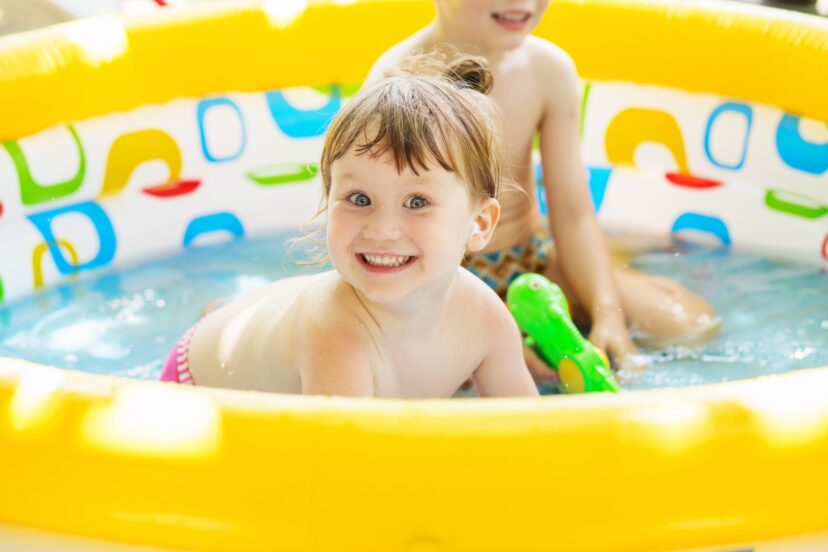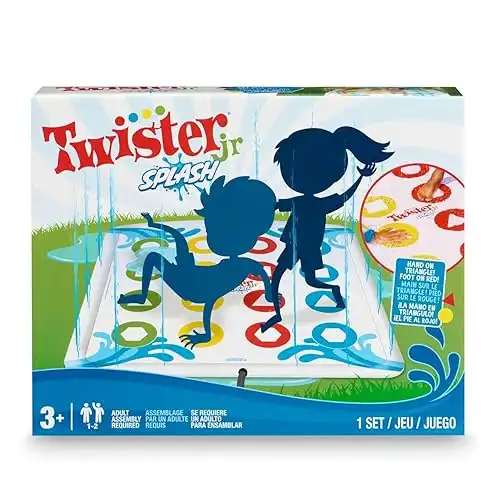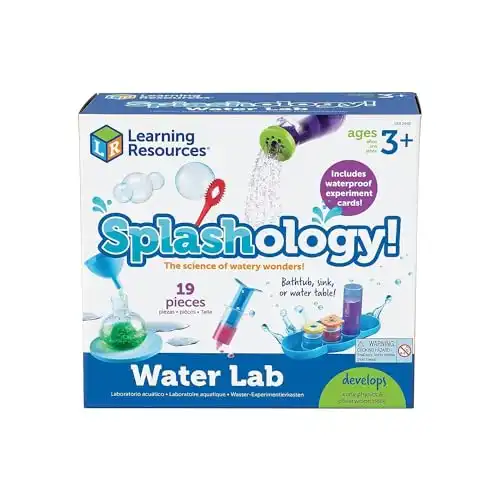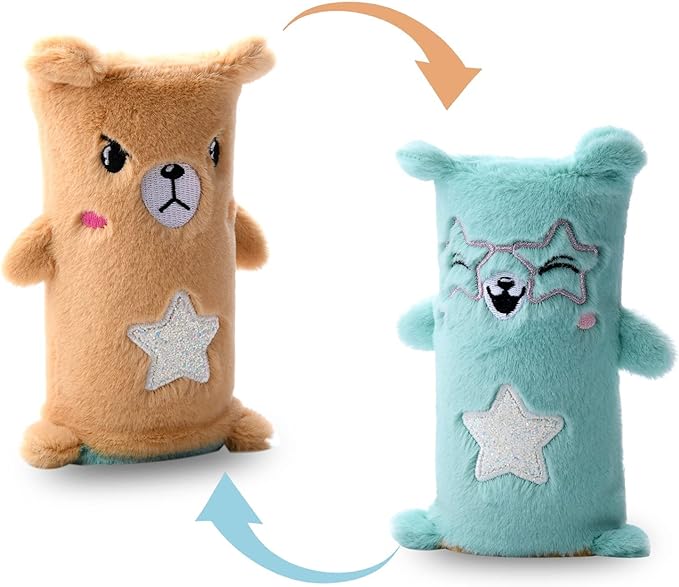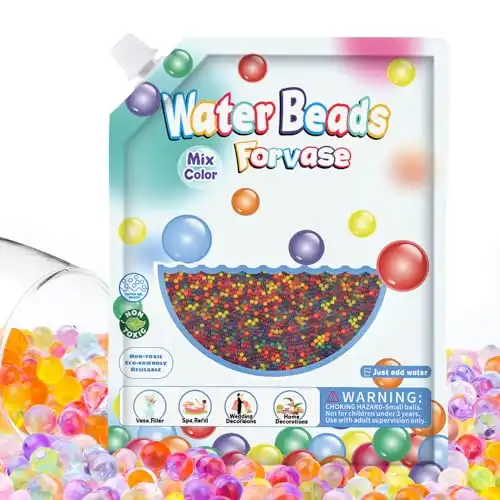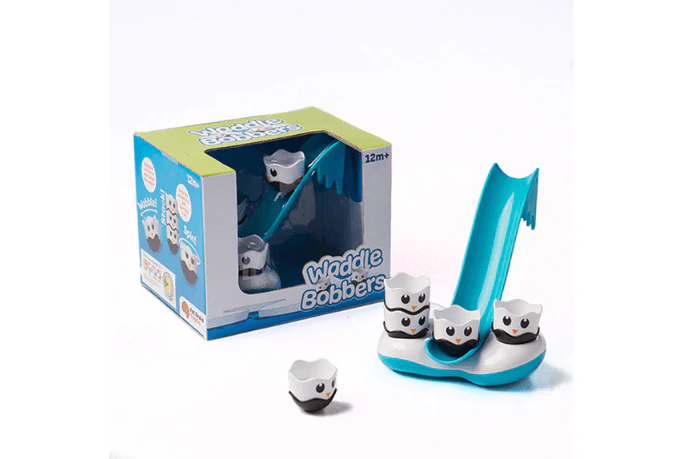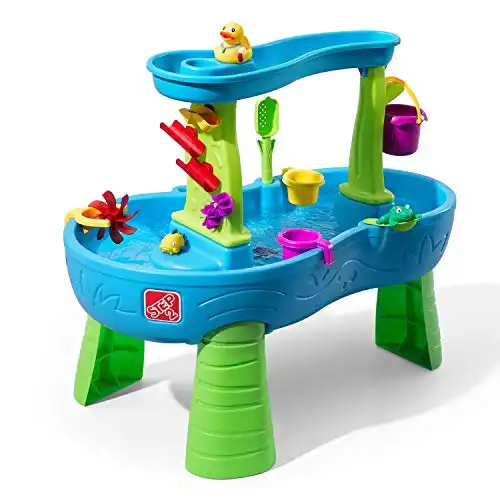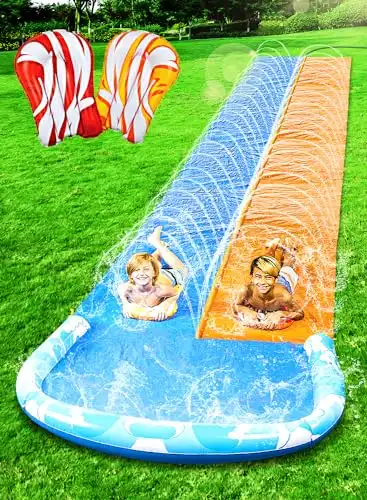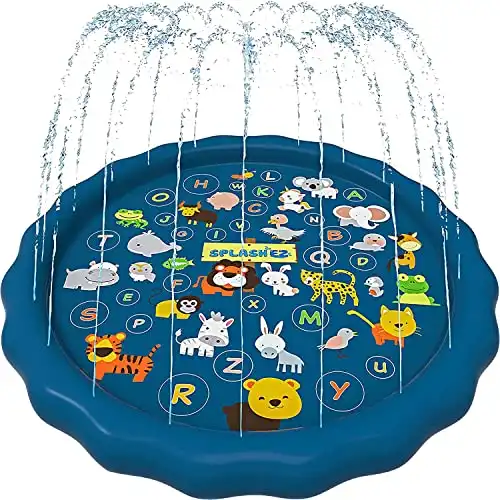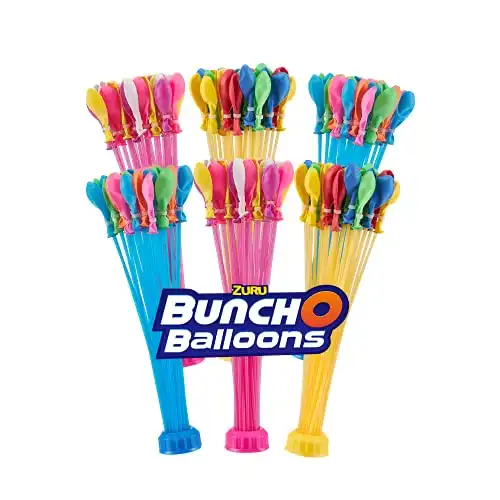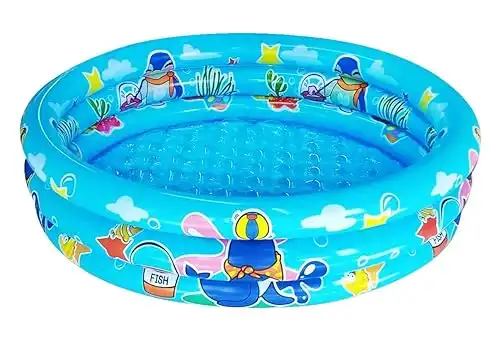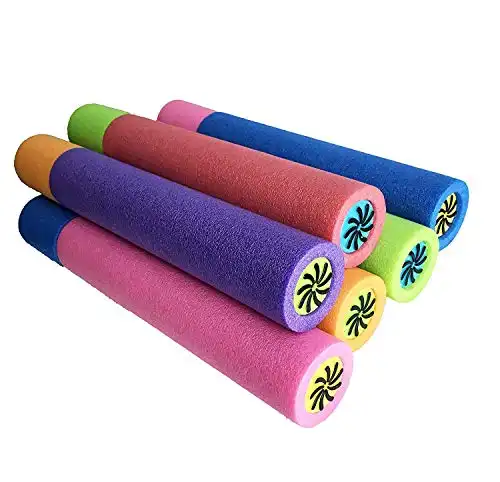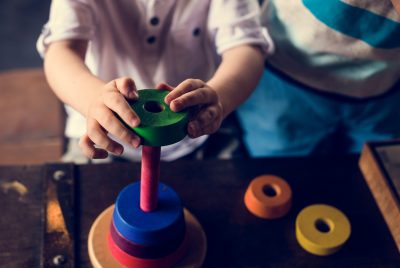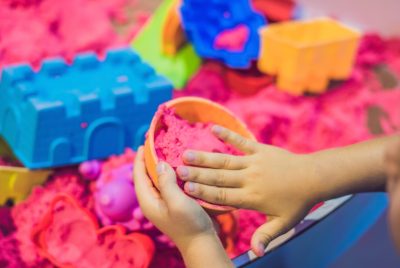Water Play Fun: Your Ultimate Guide to Engaging Kids in Splash-tastic Learning
Water play is an incredibly beneficial and enjoyable activity for children of all ages and can provide a myriad of learning opportunities. In this article, we will explore the numerous advantages for children and delve into the different aspects of development that it nurtures. Whether it’s splashing in a pool, exploring a water table, or engaging in water-based games, the benefits are vast and profound. We will also look into some of the most engaging and popular water toys to keep your kids entertained!
In This Article
The Importance of Play in Child Development
Before diving into the benefits of water play, let’s first acknowledge the importance of play itself. Play is a natural instinct for children, and it serves as a vital tool for their development. Through play, children develop their creativity, imagination, problem-solving skills, and social competence. It provides a platform for them to learn and understand various concepts in a hands-on and engaging manner.
What is Water Play?
Water play is essentially any activity that involves the use of water as a primary medium. It can include activities such as splashing, pouring, floating, and exploring objects in water. It can take place in various settings, including pools, bathtubs, water tables, and outdoor water parks. The versatility and open-ended nature of playing with water make it suitable for children of different ages and developmental stages.
What Are The Benefits of Water Play
Water play is more than just fun and games—it’s an incredible tool for children’s development. From building essential physical skills to enhancing cognitive and sensory experiences, water play offers a unique way for kids to learn while having a blast. In this section, we’ll explore the many benefits of water play, including its role in boosting motor skills, encouraging creativity, and promoting social interaction. Let’s dive in.
Fine Motor Skills Development
Water play offers abundant opportunities for children to refine their fine motor skills. Pouring water, squeezing sponges, and manipulating water toys require precise hand movements and coordination. These actions strengthen hand muscles, improve dexterity, and enhance hand-eye coordination.
Gross Motor Skills Development
Engaging in water play also promotes the development of gross motor skills. Activities like jumping, splashing, and swimming help children strengthen their muscles, improve their balance, and enhance overall body coordination. Water’s buoyancy reduces the impact on joints, making it an ideal medium for children to practice and refine their motor skills.
Coordination and Balance Improvement
Water play encourages children to maintain their balance and coordination as they navigate through different water environments. Activities such as walking on slippery surfaces, maneuvering around water obstacles, and swimming in different depths require constant adjustments and promote the development of coordination and balance.
Water Play Stimulates the Senses
Playing with water engages multiple senses simultaneously, providing a rich sensory experience for children. The tactile sensation of water, the sound of splashing, the sight of ripples, and even the smell of water all contribute to sensory stimulation. Such sensory experiences help children refine their sensory processing abilities and enhance their overall sensory integration.
Enhances Cognitive Development
Water play also plays a vital role in promoting cognitive development. By experimenting with different water flows, observing the effects of pouring water, and predicting the outcome of floating objects, children engage in critical thinking and problem-solving. They learn cause-and-effect relationships, develop scientific inquiry skills, and foster their ability to think logically.
Encourages Social Interaction
Playing with water provides an excellent opportunity for children to engage in social interaction and cooperative play. Whether it’s sharing water toys, collaborating on building water structures, or engaging in water games, children learn to communicate, negotiate, and work together. These experiences lay the foundation for developing essential social skills and building positive relationships with peers.
Builds Confidence and Self-esteem
Success and accomplishment during water play can significantly boost a child’s confidence and self-esteem. As they overcome challenges, learn new skills, and achieve goals in a water-based environment, children develop a sense of mastery and pride. This increased self-confidence extends beyond the realm of water play and positively impacts their overall self-esteem.
Promotes Emotional Regulation
Water play offers a therapeutic and calming effect on children’s emotions. The sensory experiences provided by water help children regulate their emotions, reduce stress, and promote relaxation. Splashing, pouring, and immersing oneself in water can have a soothing effect, providing an outlet for emotional expression and promoting emotional well-being.
Problem-Solving and Critical Thinking Skills
Water play encourages children to explore, experiment, and solve problems independently. They learn to observe, analyze, and devise strategies to overcome obstacles or achieve specific goals. This process enhances their problem-solving and critical thinking skills, which are essential for their academic and personal development.
Mathematical and Scientific Concepts
Water play provides an ideal platform for introducing the STEM learning concepts to children . They can explore concepts such as volume, measurement, density, and buoyancy through hands-on experiences with water.
Pouring water from different containers, observing the effects of floating and sinking objects, and experimenting with water flow all contribute to a solid foundation in mathematical and scientific understanding.
Water Play as a Therapeutic Tool
Playing with water has therapeutic benefits beyond its developmental advantages. It can be used as a therapeutic tool for children with funtional needs or those undergoing sensory integration therapy. Water wiggler toys are becoming increasingly popular for those with sensory needs.
Relaxation and Stress Relief
The calming properties of water make it an excellent medium for relaxation and stress relief. Children can find solace and tranquillity in playing with water, helping them reduce anxiety and promote emotional well-being.
My Top Picks For Water Toys and Activities
Water play offers endless possibilities for fun and learning, whether it’s indoors or outdoors. In this section, I’ll be sharing my top picks for water toys and activities that will keep kids entertained while promoting their physical and cognitive development. From splash-worthy outdoor toys to creative indoor water activities, these options are perfect for engaging your little ones in safe, imaginative, and developmental play. Let’s dive into some fantastic ideas that are sure to make a splash!
Indoor Water Toys and Activities
Water Bead Play: Water beads are squishy, jelly-like balls that expand in water. Fill a shallow container with them and let kids explore the texture by scooping, pouring, and feeling the beads. This sensory activity is great for developing fine motor skills as kids practice grasping and transferring the beads between cups or bowls.
Floating and Sinking Experiment: Fill a tub or basin with water and gather various small objects, such as plastic toys, stones, leaves, or metal spoons. Ask your child to guess which items will float and which will sink before placing them in the water. This hands-on science experiment sparks curiosity and helps kids understand basic physics concepts while improving their observation skills.
Water Painting: Using only a cup of water and a paintbrush, let your child “paint” on a surface like a chalkboard, paper, or even a concrete patio. The water will leave temporary marks that dry up quickly, providing an opportunity for endless creativity without the mess of real paint. This activity is great for encouraging artistic expression while developing fine motor skills and hand-eye coordination.
Sensory Bin with Cups and Spoons: Create a mini water play station with a sensory bin, cups, spoons, and funnels. Fill the bin with water and provide small waterproof toys or objects. Kids can practice pouring and transferring water, which helps them learn about volume, measurement, and control. It’s a simple but highly engaging activity that works well for both toddlers and older children.
Bathtub Toys: Make bath time more than just washing up by introducing fun bath toys. Floating boats, squirt toys, and foam letters or shapes that stick to the side of the tub can turn any bath into a playful learning experience. These toys help with imaginative play, letter recognition, and basic physics concepts like buoyancy.
Ice Cube Melting Race: Freeze small toys or objects inside ice cubes and give kids the challenge of melting them to retrieve the treasures inside. They can use warm water, salt, or simply their hands to experiment with different methods of speeding up the process. This activity is an excellent way to introduce the concept of temperature and time while keeping kids engaged and curious.
Outdoor Water Toys and Activities
Car Wash Station: Create a car wash for toy cars, bikes, or even ride-on toys. Set out buckets of soapy water, sponges, and a small hose or watering can for rinsing. Kids will love getting their hands soapy and scrubbing their toys clean, all while engaging in imaginative play. This activity encourages responsibility and gives them a sense of achievement as they see the results of their efforts.
Water Table: A water table with compartments is ideal for indoor use and provides a mess-contained environment for children to splash and explore. These tables often come with features like spinners, pouring tools, and water wheels that keep kids engaged for hours. They offer an opportunity for open-ended play while developing hand-eye coordination and problem-solving skills.
Outdoor Water Wall: Build a DIY water wall by attaching plastic pipes, funnels, and cups to a vertical surface like a fence. Children can pour water through the various openings and watch it flow through different paths, learning about cause and effect. This type of activity promotes problem-solving skills and encourages imaginative, open-ended play.
Water Slide: A slip-and-slide or inflatable water slide offers endless outdoor entertainment. Whether it’s a simple plastic sheet with a hose attached or a more elaborate inflatable, kids can practice sliding, improve balance, and enjoy friendly competition as they zoom down the water-soaked surface. It’s a great way to burn off energy while developing coordination and body awareness.
Sprinkler Fun: Set up a sprinkler in the yard and let your kids run, jump, and splash through the water. It’s an ideal way to cool off on a hot day while encouraging physical activity. Kids can invent games like racing through the sprinkler, jumping over the water streams, or trying to avoid getting splashed. This activity helps build their gross motor skills and keeps them active.
Splash Pad: Portable splash pads are perfect for younger children who might not be ready for a pool but still want to enjoy water fun. These soft, inflatable mats spray water up from the surface, allowing kids to run, jump, and splash safely. Splash pads are great for sensory play, helping little ones develop spatial awareness and balance in a low-risk water environment.
Giant Sponges and Buckets: Give kids large sponges and buckets of water, and let them dip the sponges in and “paint” the sidewalk, patio, or even the fence. They can squeeze out water, practice wringing the sponge, and create patterns on the pavement. This activity is fantastic for building hand strength, improving fine motor skills, and getting creative with minimal mess.
Water Balloon Toss: Have a fun water balloon toss where kids pair up and try to throw balloons back and forth without them bursting. You can turn this into a game by challenging them to take a step back after each successful catch. This activity helps with hand-eye coordination and teamwork while providing plenty of laughter and excitement.
Kiddie Pool with Toys: Set up a small kiddie pool and add some waterproof toys like floating balls, boats, or small inflatables. Kids can sit in the pool and engage in pretend play, splashing around in a safe, controlled environment. It’s a simple way to bring the fun of water play into the backyard, helping toddlers and young kids develop their gross motor skills through movement.
Water Blasters: Water blasters or water guns offer a fun and active way for kids to engage in outdoor play. They can aim at targets, chase each other, or work together in teams for water battles. This activity is excellent for improving coordination, teamwork, and aim, while keeping children active and cool on warm days.
Safety Considerations for Water Play
While playing with water toys can be highly beneficial, safety should always be a top priority. Here are some essential safety considerations:
Supervision: Children should always be supervised by a responsible adult to ensure their safety. Constant supervision ensures prompt response in case of any emergencies and helps prevent accidents.
Water Safety Rules: Teach children basic water safety rules, such as not running near water, not diving into shallow water, and always wearing appropriate flotation devices if needed. Reinforce the importance of following these rules to prevent accidents and ensure their well-being.
Hygiene Practices: Promote good hygiene practices during water play. Encourage children to wash their hands before and after activities. Regularly clean equipment and ensure the water used is clean and safe for children.
Closing Thoughts From Me
Water play is a remarkable avenue for children to engage in enjoyable and educational experiences. Its benefits extend across various domains of development, including physical, sensory, social, emotional, and cognitive aspects. By providing a platform for exploration, creativity, and learning, water play nurtures children’s holistic growth and fosters essential life skills.
FAQs
Are water toys suitable for children of all ages? Yes, they be enjoyed by children of all ages, from infants to older children. It is important to ensure age-appropriate activities and supervision based on the child’s developmental stage.
Can water play be messy? Yes, it, but it is part of the fun! Consider setting up activities outdoors or in an easily cleanable area to minimize any concerns about messiness.
Are there any specific benefits for children with support needs? Water play offers unique benefits for children with support needs, including sensory integration therapy, promoting relaxation, and providing a supportive environment for physical activities.
What safety precautions should I take? Always supervise children, teach them water safety rules, and ensure the water used is clean and safe. Flotation devices appropriate for the child’s age and swimming ability should be used when necessary.
Can water play be incorporated into indoor activities? Yes, it can be adapted for indoor activities by using water tables, sensory bins, or even bathtub activities. Ensure proper protection for the surrounding area to prevent water damage.

